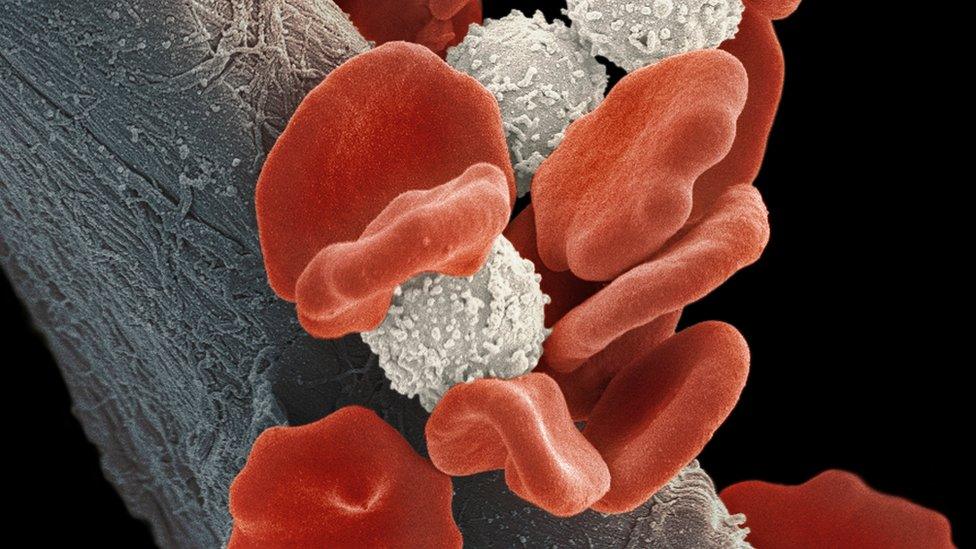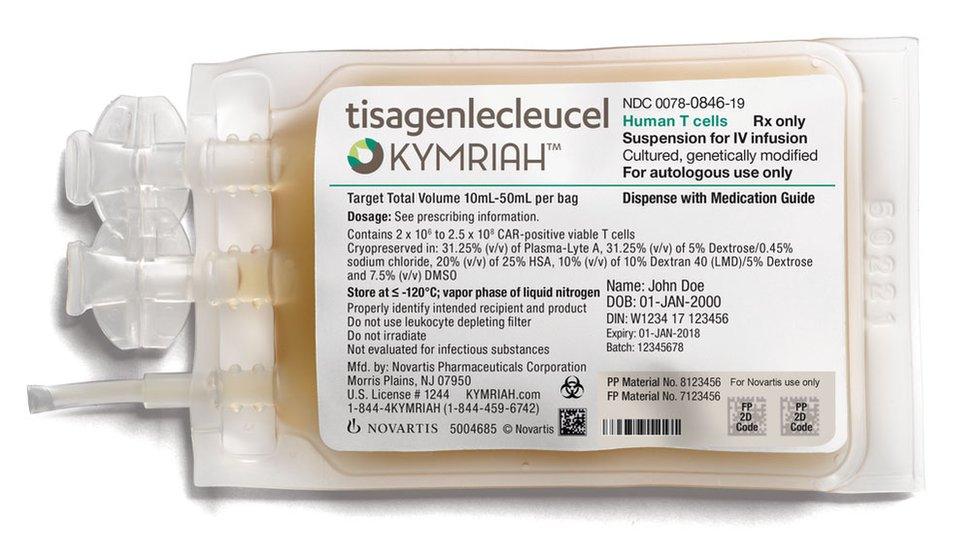Deal for NHS to offer exciting new child cancer therapy
- Published

A deal has been struck to let the NHS offer children an expensive new cancer therapy that has been called the most exciting treatment advance for decades.
CAR-T is a cutting-edge treatment for aggressive leukaemia when other drugs have failed but usually costs hundreds of thousands of pounds per patient.
NHS England boss Simon Stevens says a fair and affordable price has been reached with manufacturer Novartis.
Hospitals could start giving it to a small number of children within weeks.
The first three NHS hospitals to apply to use the CAR-T (chimeric antigen receptor T-cell) therapy are in London, Manchester and Newcastle.
The NHS has a limited pot of money, meaning tough choices have to be made about which treatments are affordable.
The CAR-T treatment from Novartis has a list price of £282,000 per patient, though the actual figure NHS England will pay for it has not been disclosed.
The cash for CAR-T will come from the Cancer Drugs Fund, external, set up to fast-track access to the most promising new cancer treatments.
How does it work?
CAR-T is a novel way of treating cancer that is "personalised" to the individual patient.
It involves giving patients genetically modified immune cells.
Immune cells, called T-cells, are taken from a sample of the patient's blood and reprogrammed in the lab to create ones that are genetically coded to recognise and destroy the patient's cancer cells. This "living therapy" is then given to the patient.
It has been shown in trials to cure some patients, even those with advanced cancers where other treatments have failed, although it can also cause serious side-effects and is not guaranteed to work.
Plus it is complex and expensive to make.

The deal means the NHS can use the CAR-T treatment called Kymriah for eligible patients, those up to 25 years old who have advanced B-cell acute lymphoblastic leukaemia that is not responding to standard therapies.
About 400 children are diagnosed with acute lymphoblastic leukaemia - a type of blood cancer - every year in the UK. But only about 15 of these might be suitable for the CAR-T treatment each year.
It is the first in what is expected to be a rapidly expanding class of personalised cancer therapies available on the NHS.
Dr Alasdair Rankin, from the blood cancer charity Bloodwise, said: "CAR-T cell therapy is the most exciting advances in treatment for childhood leukaemia for decades.
"Intensive chemotherapy can now cure the vast majority of children but a significant number still tragically die every year because they do not respond to treatment.
"CAR-T cell therapy offers the genuine chance of a long-term cure for children who otherwise would have no other hope."
- Published30 August 2017
